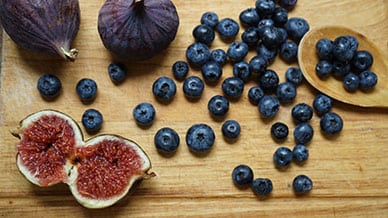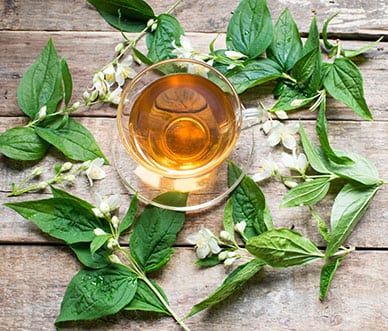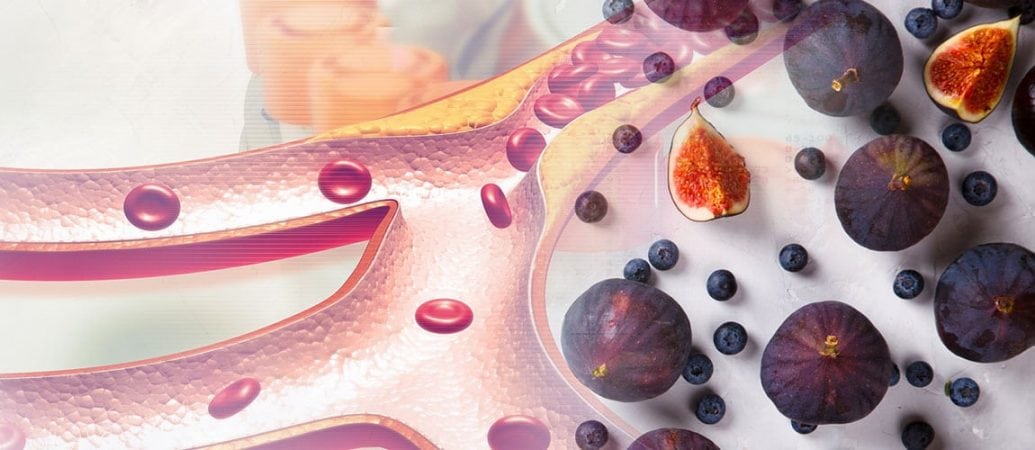High cholesterol is one of the greatest risk factors for coronary artery disease, stroke and heart attack. While prescription statins can be an effective way to reduce bad cholesterol levels, they aren’t enough for many adults and they come with side effects. Here are some of the most effective science-backed ways to naturally maintain healthy cholesterol levels.
The Importance of Healthy Cholesterol Levels
Cholesterol is a fatty-like substance found in cells that’s necessary to make vitamin D, hormones and some substances for digestion. Cholesterol isn’t bad, because the human body needs it to build cells and hormones, but too much cholesterol can be harmful.
There are two types of cholesterol: LDL or “bad” cholesterol and HDL or “good” cholesterol. Too much LDL cholesterol and not enough HDL cholesterol can increase the risk of cholesterol building up within arteries that feed the brain and heart. LDL cholesterol contributes to this fatty buildup in arteries called atherosclerosis which increases the risk of stroke, heart attack, and peripheral artery disease.
HDL cholesterol works a bit differently. It’s believed that this type of cholesterol works as a scavenger to carry LDL cholesterol away from arteries and transport it to the liver so it can be broken down. Healthy HDL cholesterol levels appear to protect against stroke and heart disease.
Now that you have a better understanding of how cholesterol works, it’s time to learn ways to naturally maintain healthier levels of HDL and LDL cholesterol.
Grape Seed Extract
Grapes have long been known for their health benefits, but it wasn’t until recently that scientists were able to understand why. Grape seed extract has been found in several studies to have heart health benefits, including the ability to support healthy blood pressure and cholesterol levels. This is due to a high concentration of oligomeric proanthocyanidins (OPCs).
According to one study published in the Journal of Medicinal Food, grape seed extract can help lower oxidized LDL (bad) cholesterol particles. In this study, 52 people with moderately high cholesterol levels received either a placebo or 200 mg/day of grape seed extract. After eight weeks, the group receiving grape seed extract experienced an average 10.7 mg/dL drop in total cholesterol while LDL cholesterol dropped by an average of 9.7 mg/dL.
Purple Fruits and Vegetables
 Purple vegetables and fruits appear to be effective at improving good HDL cholesterol due to unique antioxidants called anthocyanins. Extracts of anthocyanin have been shown in studies to fight free radical damage and possibly raise HDL cholesterol levels.
Purple vegetables and fruits appear to be effective at improving good HDL cholesterol due to unique antioxidants called anthocyanins. Extracts of anthocyanin have been shown in studies to fight free radical damage and possibly raise HDL cholesterol levels.
A 24-week study published in the Journal of Nutrition on participants with diabetes also found that those who took an anthocyanin supplement two times a day had a 19 percent average increase in HDL cholesterol plus other improvements in heart health markers.
Along with taking supplements containing anthocyanin extract, you can eat a diet rich in purple or blue vegetables and fruits like eggplant, blueberries, figs, red cabbage, acai berries and even purple cauliflower.
Olive Oil
Olive oil is the only form of monounsaturated fat that appears to reduce the risk of heart disease, according to a massive analysis of 42 studies involving over 800,000 participants published in Lipids in Health and Disease. It appears that olive oil offers heart health benefits primarily by increasing HDL or “good” cholesterol thanks to its antioxidants called polyphenols.
Not all types of olive oil are equal. Extra virgin olive oil has a higher concentration of polyphenols than olive oils that are more processed, but the amount of polyphenols can still vary by brand. One study found that healthy young men who consumed two tablespoons of different types of olive oil each day had HDL levels significantly higher after three weeks when they consumed olive oil with the higher amount of polyphenols.
Fatty Fish
Fatty fish like sardines, salmon and mackerel are rich in omega-3 fats that have been shown in numerous studies to reduce inflammation and support healthy functioning of cells lining the arteries. Research also indicates that eating fatty fish or taking fish oil supplements supports healthy levels of good HDL cholesterol.
One study published in the Journal of Clinical Lipidology found that coronary heart disease patients who ate fatty fish four times per week had higher HDL cholesterol levels as well as larger HDL particles.
High-Intensity Exercise
Any form of exercise is an effective way to achieve healthy cholesterol levels, including aerobic exercise, strength training and high-intensity exercise. Still, high-intensity exercise appears to produce the biggest increase in good cholesterol levels.
A 12-week study published in Lipids in Health and Disease involving overweight men found than high-intensity exercise produced an average increase 10 percent of HDL cholesterol while the low-intensity group experienced just a 2 percent increase.
Exercising at least a few times a week can help improve cholesterol levels. Any type of exercise can be beneficial, but high-intensity types of exercise are most effective if cholesterol is a concern.
Green Tea Extract
 Some studies have indicated that green tea and tea extract can help promote healthier LDL cholesterol levels as well as healthy blood sugar and blood pressure, other markers of heart health, thanks to the high concentration of antioxidant polyphenols in tea. One study published in 2003 found that people with moderately high cholesterol who took a tea extract for 12 weeks experienced a 16 percent average decline in LDL cholesterol. A separate study published in the Journal of the American Dietetic Association found that drinking green tea or taking a tea extract is linked to a significant reduction in bad cholesterol levels.
Some studies have indicated that green tea and tea extract can help promote healthier LDL cholesterol levels as well as healthy blood sugar and blood pressure, other markers of heart health, thanks to the high concentration of antioxidant polyphenols in tea. One study published in 2003 found that people with moderately high cholesterol who took a tea extract for 12 weeks experienced a 16 percent average decline in LDL cholesterol. A separate study published in the Journal of the American Dietetic Association found that drinking green tea or taking a tea extract is linked to a significant reduction in bad cholesterol levels.
Niacin
Niacin or vitamin B3 is commonly prescribed along with statin drugs like Crestor to lower cholesterol. Niacin can be extremely effective at promoting higher HDL cholesterol levels. Numerous studies have found that niacin can increase good cholesterol levels while reducing triglycerides, and it has some effect on maintaining healthier levels of bad cholesterol. At the right dose, niacin has been shown to increase HDL cholesterol by up to 30 percent.
Resveratrol
Resveratrol, a polyphenol found in grapes and red wine, offers some promise in protecting against heart disease. One study in the Iranian Journal of Basic Medical Sciences even concluded that resveratrol helps protect against atherosclerosis by supporting healthy levels of bad cholesterol and by its effects on inflammation.
The link between red wine and a lower risk of heart attacks and heart disease isn’t completely understood yet, but resveratrol is believed to increase levels of good cholesterol to protect against a build-up of cholesterol in the arteries.

